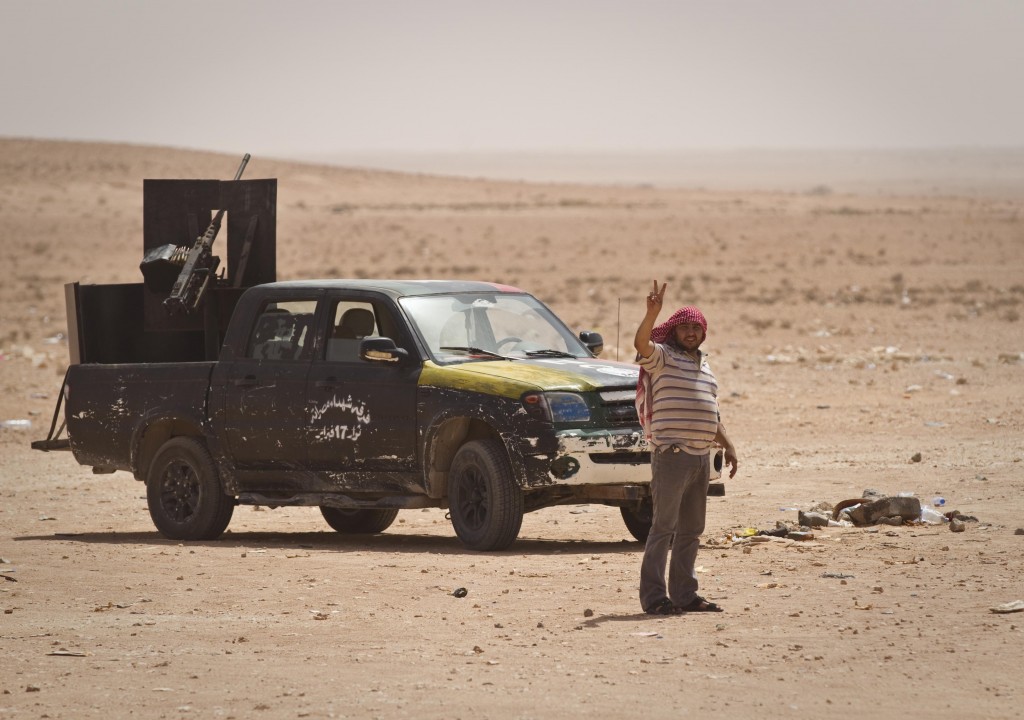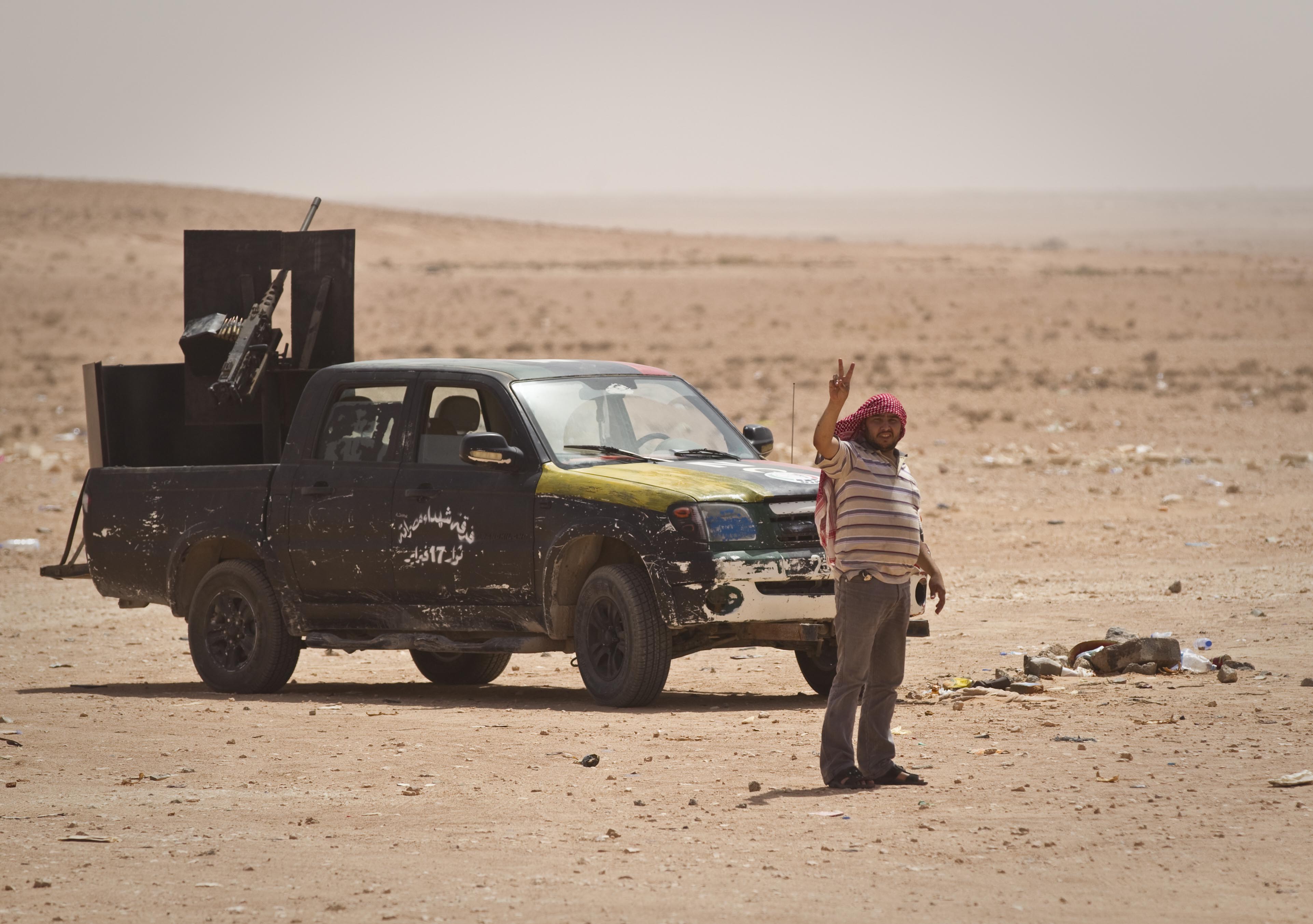By George Grant.
Bir Dufan, 13 July:

In the 42-degree heat, 25 men sit under makeshift tents at a checkpoint some 20 kilometres . . .[restrict]northeast of Bani Walid awaiting their orders.
Armed with Kalashnikovs and around a dozen flatbed 4x4s mounted with heavy machine-guns and rocket-launchers, this does not constitute much of an invasion force
This is Bir Dufan, where over 1,000 men armed with tanks and heavy artillery were reported to have mustered for a potential assault on Bani Walid following the capture of two journalists from Misrata last Sunday.
With the deadline for the journalists’ release having expired last night, this force was reported to have begun encircling Bani Walid in preparation for an attack.
“I can tell you we have no tanks and no artillery here”, the station’s commander, Hadi Al-Kabir, told the Libya Herald this afternoon. “This is a checkpoint just to keep this are safe, because some guys from Bani Walid have kidnapped people around here. We have about 25 men, and that has been the same for the last three months.”
With Bir Dufan the final checkpoint before Bani Walid, a number of guards warn us not to proceed any further: “If you go, they will shoot at your wheels and they will take you”, one says. “Three Misratans went down that road yesterday, and they have not come back.”
We ask Kabir whether there are any more forces mustered down the road or moving to encircle Bani Walid. “No, there are not”, he says. “I have not received any information about whether the army will arrive, but it is not true that they have surrounded Bani Walid.”
At Al-Soeh, another checkpoint some five kilometres back from Bir Dufan, two T-54 tanks can be seen sitting behind walls of sand, their gun-barrels pointing forwards down the road. We ask the men here if the tanks are operational. “No, they are broken”, one says. “They are for decoration.”
Such are the difficulties of reporting at present in Libya. This evening, a Libya Herald source in close contact with the Misrata’s military commanders insisted the force did exist.
“There is a big force”, he said. “It was at Bir Dufan, but last night they started to turn back to Misrata because approval to move forwards from the Ministry of Defence did not come. Those men at Bir Dufan may not have been telling you the truth.”
Either way, what does seem certain is that this crisis remains far from over. If the report of the guards at Bir Dufan is true, then five Misratans are now being held in Bani Walid, or worse.
This afternoon, a large demonstration was held in Misrata demanding the journalists’ release, and on Wednesday NTC Chairman Mustafa Abdul Jalil warned that the state was ready “to take all necessary measures” if Bani Walid did not release the men voluntarily.
As the rapid response to the capture of Tripoli airport by militiamen from Tarhouna recently demonstrated, the government retains the capacity to deploy sizeable forces at short notice where necessary.
In spite of the widespread reports to the contrary, however, it does appear that there is no invasion force surrounding Bani Walid at present.
It may well be that the government is happy to allow such rumours to persist, if only to frighten Bani Walid into releasing the captives without resort to force. With the roads in and out of the town now effectively closed, Bani Walid is increasingly isolated, with reports of food and fuel shortages starting to emerge.
Negotiations with the town are ongoing, and the government currently looks set on finding a peaceful resolution to the situation.
With just weeks to go before they hand power to the National Congress, Libya’s transitional leaders will be acutely conscious of the dangers of an assault on Bani Walid being one of their final acts of office.
[/restrict]







